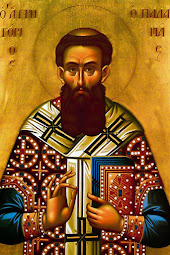 |
| Not even corn pop ran this many bad dudes! |
But they really went off the deep end this week. Starting with such glorious tweets as the following.
We also troll on Instagram.
— The Lincoln Project (@ProjectLincoln) July 29, 2020
Follow us: https://t.co/IexsBByhHp pic.twitter.com/BgwRhLpHpo
Impotus Americanus is one of the heaviest leaders in the animal kingdom, and is famously known to be an orange, ruddy color not found in nature. pic.twitter.com/8ccudG6krq
— The Lincoln Project (@ProjectLincoln) July 31, 2020
But their ultimate self-inflicted wound this week came when they ran their ad against GOP Senator Susan Collins. When their mission is to go after the "most right wing" of the GOP congressman and they're wasting money going after the left-wing Susan Collins, a pro-abortion socialist in favor of expanding big government healthcare, you know we've got some hacks on our hands. It should have been telling when their Twitter feed was taken over by a college graduate with a degree women and gender studies but now the cat's out of the bag!
The advertisement was not just an awful waste of money to spend on a neo-con left-wing GOP senator, it also portrayed an horrible ignorance of history of the twentieth century. Something only a millenial college graduate with a degree in women and gender studies could do any way, certainly not a bunch of neo-cons still trying to masquerade as Republicans when they've already abandoned that party long ago. Though their ad against Susan Collins proves that they're not actually for any Republican reform any more by now. But then they go out and accuse Susan Collins of McCarthyism?!? What exactly is McCarthyism? McCarthyism is a paranoid delusional syndrome named after Senator Joseph McCarthy who accused his political opponents of being spies and agents of...Russia. What is McCarthyism? It's a delusional syndrome where one accuses one's political opponents of being...foreign agents, specifically of...Russia. Sound familiar? Who are the real McCarthyists? Oh, yeah, that would be The Lincoln Project.
The irony is that Susan Collins is not accused of McCarthyism for flat-out defending the innocence of Trump in regards to "collusion with Russia" which we know by now never happened to begin with, she is accused of McCarthyism for maintaining our rule of law in that one is presumed innocent until proven guilty. The ad is a whole lot of bunk, a garbage piece of delusional paranoia, and frankly just a conspiratorial lie. And yet the new American Left has decided that conspiracy theories are the new "norm" and questioning conspiracy theories means they can now re-define the game. But McCarthyism is in the history books and its meaning is well-established. People who know history not only will know that it's a lie and a damned lie to accuse Susan Collins of such, but also, congratulations, The Lincoln Project just wasted money going after a liberal GOP politician that no one is worried about maintaining the seat of any way. Except maybe Susan Collins.
To add insult to injury, there was also a Tweet on Thursday from The Lincoln Project demanding Trump resign. Oh, I thought they cared about getting him out of office democratically. Maybe they realize their organization is being exposed as the joke it is. Or maybe they realize that Trump is going to be re-elected.

















